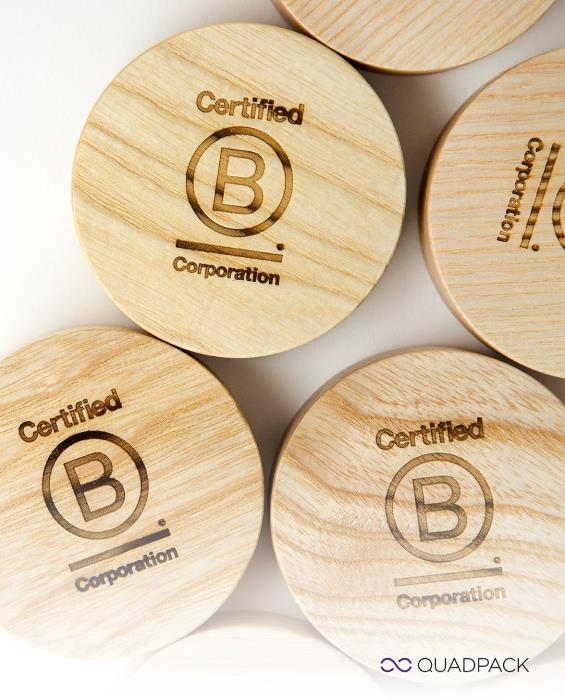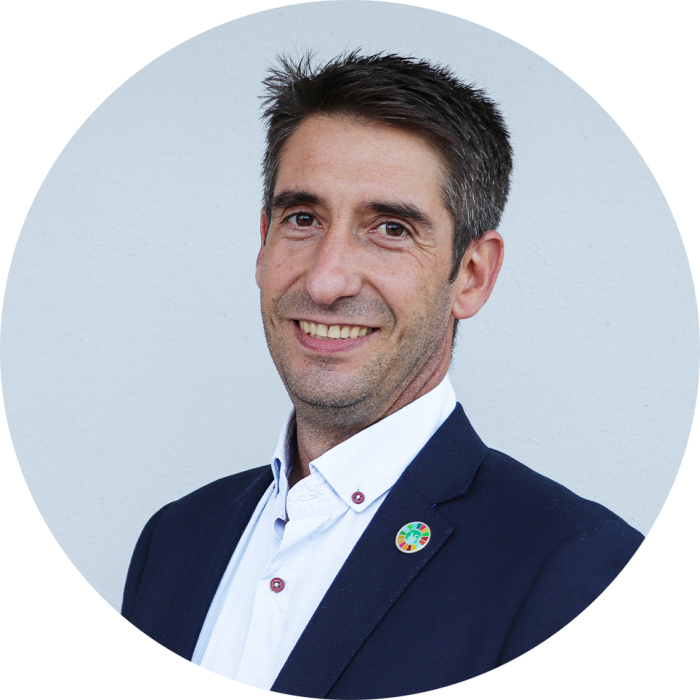“B Corp is about transforming the whole company”
Purpose-driven companies are joining B Corp to share, collaborate and accelerate positive change in the business world
Thousands of businesses are joining the B Corp community worldwide, driven by a purpose of making a positive impact on society and the environment. But what does B Corp mean to companies and how deep is the transformation required to join it?
Pablo Sanchez, Managing Director of B Lab Spain, the non-profit organisation serving the B Corp movement, helps us to answer these and more questions.
What does B Corp mean to you?
It is a community of companies that are leading a change in the business paradigm and facing the complexities that entails this transformation. Many of them acknowledge their imperfections but are committed to moving forward to creating positive impact and developing new solutions. Every time I talk to a person who works at a B Corp company, I see this enthusiasm to respond to their challenges. Seeing this willingness, commitment, and intention gives me great hope.
What makes a company want to become a B Corp?
It is a cultural element, above all, where the leadership realises the responsibility that they have as a company. Traditionally, a company is seen as a merely economic agent, focused on sales and profits, but the change starts when the leaders believe they can contribute with solutions to social and environmental challenges.
How rigorous is the B Corp assessment and how is it different from other sustainability certifications?
The assessment evaluates every one of the company's operations and the business model, not just products and processes – there are more than 200 indicators that helps to build an x-ray of all activities. As it is structured by interest groups, it shows how the company could improve the impact for each of these groups. The big difference is that B Corp is not solely an assessment or a certification, it’s an identity. You belong to a community with a shared vision, which brings learning, exchange of practices and changes in the value chain and the company’s ecosystem.
How difficult is it to get the minimum score (80 points) in a first assessment?
It is not easy, and that’s intentional because it requires reflection and effort. The average score for a first assessment is around 55 points, quite far from this minimum score, but the important thing is to start the journey. Globally, 200,000 companies are registered on the platform but only 5,000 are certified companies. And that is because many use the platform to measure impact and culture as a first step, something we encourage them to do.
How much has the B Corp community grown recently and how has the pandemic affected this trend?
Since 2019, we have grown 30% to 40% worldwide. In 2021, we grew by 60%, and we will probably have a similar result this year. The pandemic has accelerated the growth pace. When I speak of environmental and social impact and how this is transferred to the company’s purpose, serving as a compass to guide business decisions, I can see these are elements that resonate in boards and committees and have a greater influence on commercial, financial and product strategies, for example.
How interested are the beauty and packaging sectors in being part of the B Corp community? In your opinion, where can they advance?
The beauty sector has advanced remarkably. Some skincare companies, such as Isdin, Rituals and The Body Shop, are B Corps and other brands are interested or about to become one. The packaging sector, like all manufacturing industries, is taking a little more time. The B Corp certification is a great opportunity for differentiation, not only because it helps to meet regulations but also because it is an element of business innovation. I guess the doubts they have are about the changes involved in this process. I always say that there is no way back.
B Corp is about transforming the whole company, from product design to management. But progress is, above all, about thinking how the company is evolving. The model we have today is likely to be different in 10 years, also because of regulatory and consumer pressures. Do we want to wait for these pressures to force us to act or do we want to lead the change?

